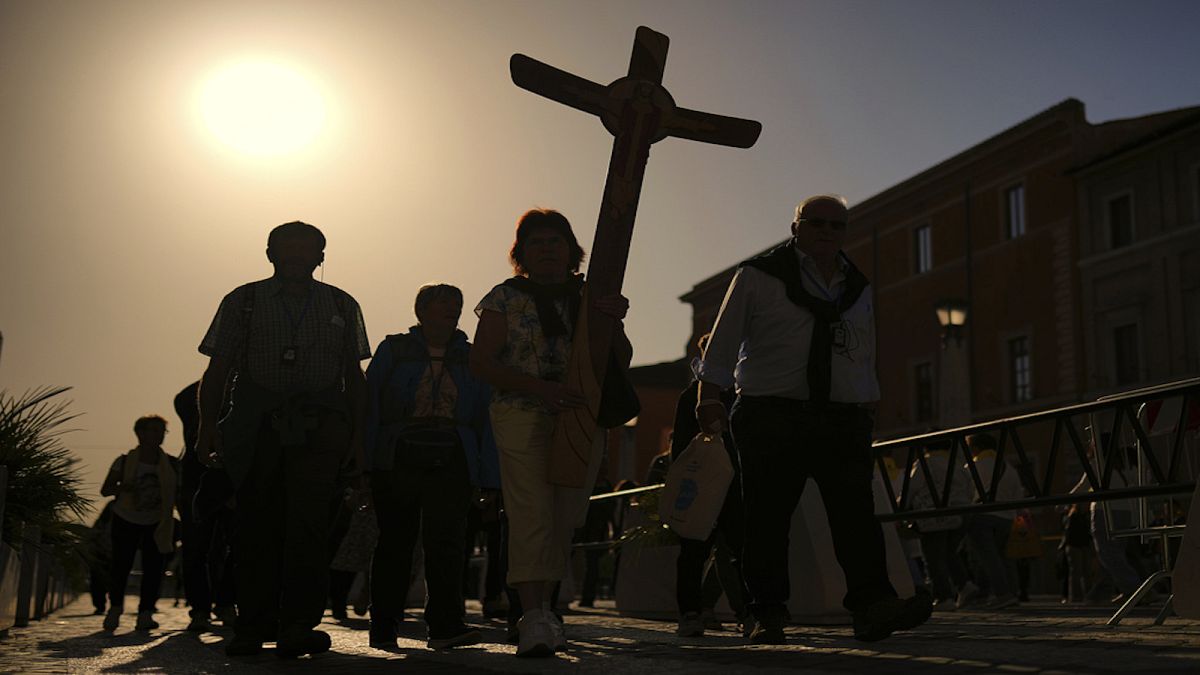From Portugal to Bulgaria, Europe is getting ready for the wildfire season

The summer season is upon us and that means European countries are ramping up preparations to combat forest fires and other natural disasters it often brings to the continent. Climate change as one of the contributing factors is increasingly responsible.
About 39 percent of the European Union’s land, some 160 million hectares, is covered by forests and woodlands, according to a report from the European Court of Auditors (ECA). But about 0.2 percent (320,000 hectares) of it goes up in smoke every year.
The number of wildfires affecting more than 30 hectares has tripled in the EU between 2006 and 2024, reaching an annual average of nearly 1,900 fires, according to the ECA report.
Forest fires are both a cause and effect of climate change, injecting billions of tonnes of CO2 in the atmosphere that in turn accelerate warming and the conditions leading to more destructive fires.
Wildfires also pose major health risks as the resulting smoke is composed of gaseous pollutants such as carbon monoxide, along with water vapor and particle pollution, which can be particularly hazardous.
According to a study led by Japan’s National Institute for Environmental Studies, over the past 50 years global warming has caused a nearly tenfold increase in deaths linked to wildfire smoke – now responsible for over 12,500 deaths per year.
Fighting wildfires also is becoming more challenging: they are increasingly difficult to put out with traditional firefighting methods and firefighting services have to deal with the “high frequency and intensity of wildfires during prolonged fire seasons”, according to a report by the European Commission which was published in November. The report also said that 96 percent of EU wildfires are caused by human actions, such as arson and negligence.
EU on fire alert
At the end of May, the European Commission announced new measures to fight wildfires this summer, co-financed by the EU Civil Protection Mechanism.
The EU Civil Protection Mechanism coordinates the response to natural and man-made disasters at the EU level and aims to foster cooperation between national authorities and provide rapid assistance to populations.
Nearly 650 firefighters from 14 European countries will be deployed in July and August to high-risk areas in France, Greece, Portugal, and Spain to support local forces. 22 airplanes and four helicopters will be stationed in ten member states to intervene when needed.
Additionally, 19 ground firefighting teams, each composed of about 30 firefighters, along with one advisory and assessment team are ready to be deployed by the EU in close cooperation with member states. A dedicated wildfire support team will also be set up within the EU Emergency Response Coordination Centre (ERCC) to monitor risks and analyse scientific data.
The European Union allocated at least 3.5 billion Euro between 2021 and 2027 to help member states tackle wildfires, according to the ECA. The money has increasingly been used to finance prevention measures, such as creating firebreaks and clearing vegetation, the court found.
The auditors however warned that EU funds are not always used effectively, citing weak targeting and poor evaluation. The report noted that Brussels has little information on the actual outcomes of the projects it supports. In some cases, the total amount member states spent on firefighting was unclear as it is often lumped together with other data for reporting purposes.

Planes, satellites and manpower
While member states heavily affected by wildfires each summer can benefit to some extent from a coordinated EU response, they also implement additional measures independently. Some of these initiatives, however, are still carried out with the support of EU funding.
Some European countries also benefit from a wildfire monitoring system built by tech giant Google, which – powered by artificial intelligence – analyses satellite data to detect and track the boundaries of wildfires and includes an app-based alert system that notifies people who are near an active fire. As of August 2024, it includes 15 countries including frequently-affected France, Greece, Italy, Portugal, and Spain.
Here’s what several European countries are doing individually to prepare for the summer of 2025:
Portugal
Since the tragic wildfires of 2017 – when blazes in Portugal’s central region claimed the lives of over 100 people and destroyed thousands of hectares of forest and housing – the country has made significant investments in wildfire preparedness and resilience.
Portugal has established a national agency to coordinate forest management and firefighting efforts and restructured the emergency system of the National Authority for Emergency and Civil Protection (ANEPC), creating 24 regional commands, reinforcing human and aerial resources, and implementing a mapping and early-warning platform.
For the summer of 2025, over 14,000 personnel, 3,000 vehicles, and 70 aircraft have been mobilised, with access to EU resources such as RescEU Canadair aircraft if needed, along with strengthened cross-border cooperation with Spain.
Spain
In Spain, the summer campaign against forest fires officially began on June 1. The number of fires in the country however appears to be declining.
According to the latest data provided by the Spanish Ministry for Ecological Transition, between January and April 2025, there were 1,508 incidents recorded, including fires and attempted fires, the lowest number of fires since 2016 (1,364 incidents) and far below 2017 (5,653 incidents).
Spain’s national firefighting response will involve a number of players. Firstly, Forest Fire Reinforcement Brigades (BRIF) and large-capacity water bombers operated by the 43rd Air and Space Force Group. Also, the Ministry of Defence’s Military Emergency Unit (UME) will be deployed, along with personnel and equipment from the National Police, Civil Guard, and the Directorate General of Traffic (DGT).
These state-level resources work in coordination with regional prevention and extinguishing plans, which are managed by the autonomous communities in Spain.
Slovenia
After a major forest fire hit the south-west Slovenian region of Kras in July 2022, which destroyed 3,700 hectares of land, the Slovenian government decided to build a unit for aerial firefighting.
In April 2023, the Defence Ministry and the Civil Protection and Disaster Relief Administration purchased four Air Tractor AT-802 aircraft. Leon Behin, the administration’s head, noted that the project cost a total of 23 million Euro, of which 15.5 million came from EU funding.
Slovakia
The Slovak Interior Ministry will rent a helicopter from a private company to fight forest fires and respond to incidents in hard-to-reach terrain. This was announced on Monday at a press conference by the State Secretary at the Ministry of the Interior Lucia Kurilovská.
The rental of a Black Hawk UH-60 helicopter equipped with firefighting technology will cost approximately 1.76 million Euro for ten weeks and will be financed through a grant from the rescEU programme. The ministry will cover the cost of flight hours – about 3,300 Euro per hour – from its own budget.
Adrián Mifkovič, President of the Fire and Rescue Corps (HaZZ), said that the goal is to secure a dedicated fleet of firefighting aircraft for Slovakia within four years using EU funds. 32 million Euro have been allocated for the project.
Bulgaria
After dozens of families lost their homes to wildfires in Bulgaria’s Yambol Region in late July 2024, President Rumen Radev called for “urgent measures to attract qualified people to the military, which is dwindling at an alarming rate”. He stressed the need to prioritise the maintenance of people and equipment over spending hundreds of millions on new aircraft.
In Bulgaria, military personnel and equipment from the Armed Forces are often deployed to extinguish and control fires.
Defence Minister Atanas Zapryanov said in February that six helicopters of the Bulgarian Air Force will be available to fight wildfires in 2025, which are twice as many as in the previous year.
He said that the Defence Ministry made considerable efforts to increase the firefighting equipment and secured about 21 million Euro in additional funding for this purpose towards the end of 2024.
Zapryanov reported that twelve air crews will be on standby during the summer, allowing the simultaneous use of at least four fire suppression helicopters at any given moment.
This article is published twice a week. The content is based on news by agencies participating in the enr.
What's Your Reaction?
 Like
0
Like
0
 Dislike
0
Dislike
0
 Love
0
Love
0
 Funny
0
Funny
0
 Angry
0
Angry
0
 Sad
0
Sad
0
 Wow
0
Wow
0






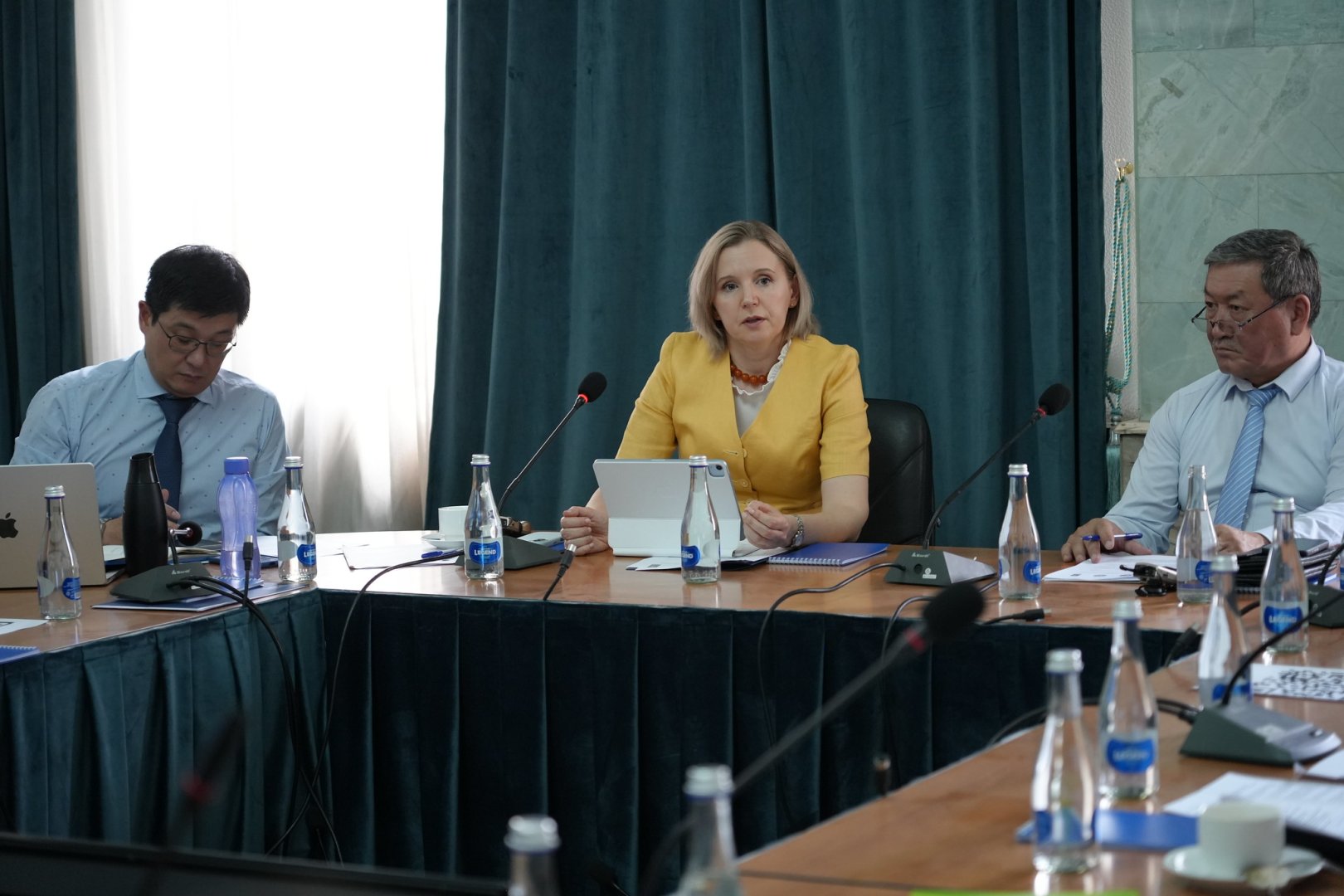























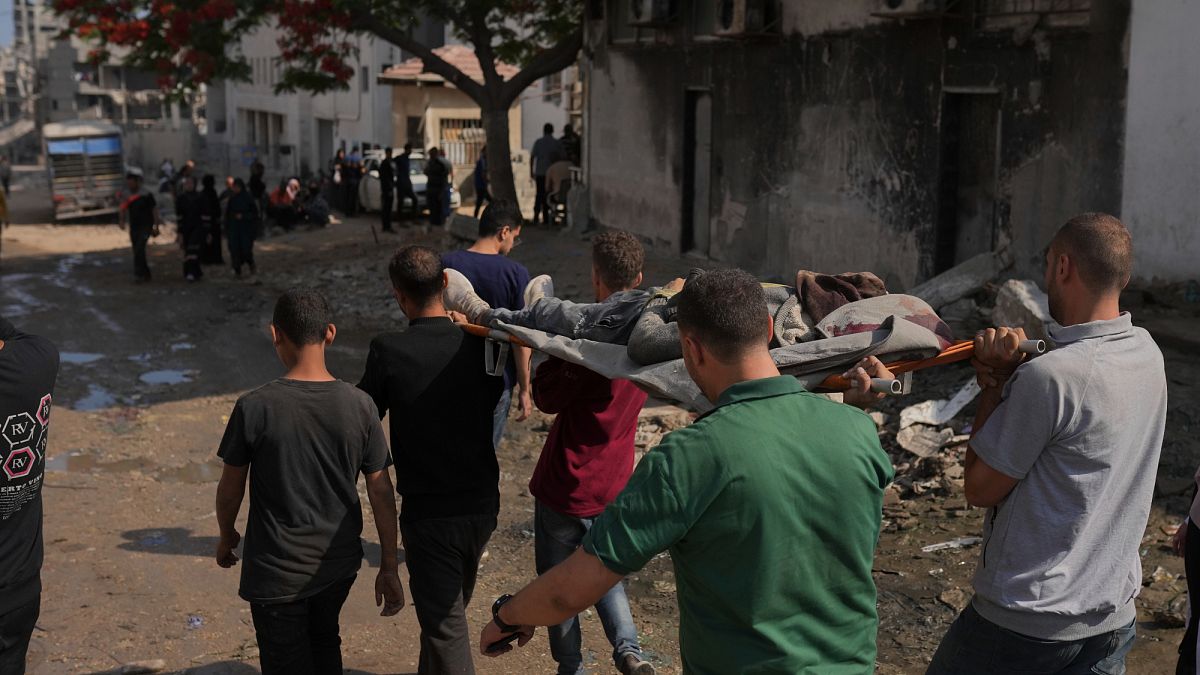
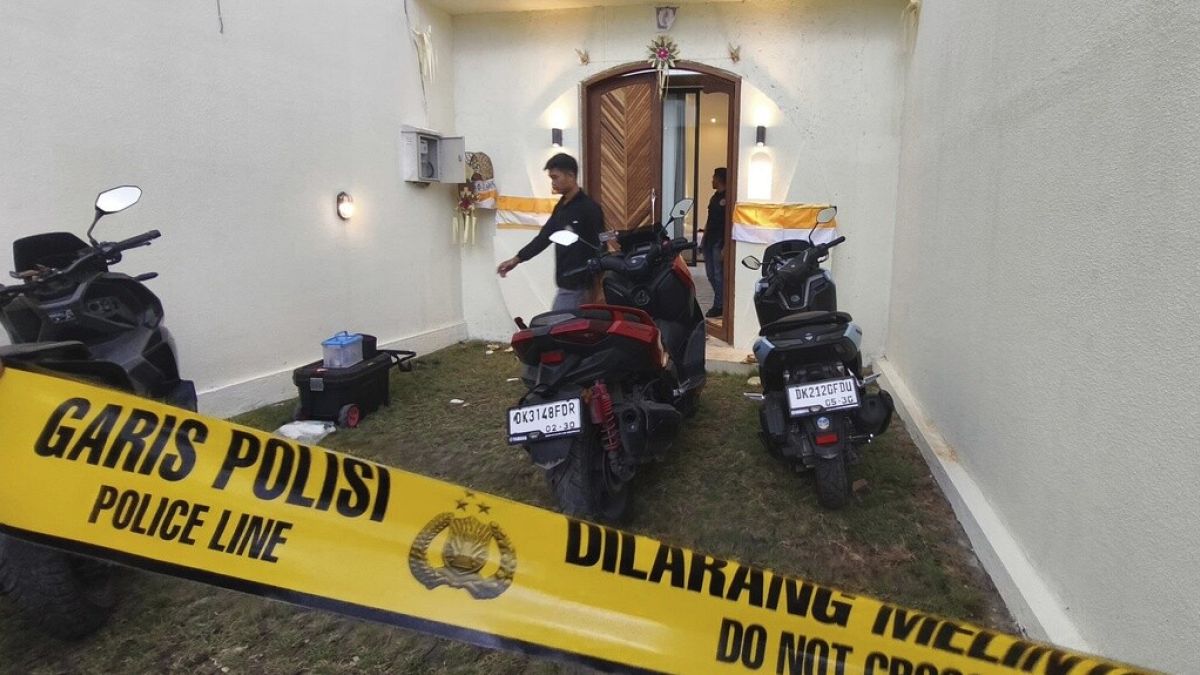














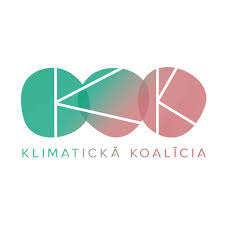


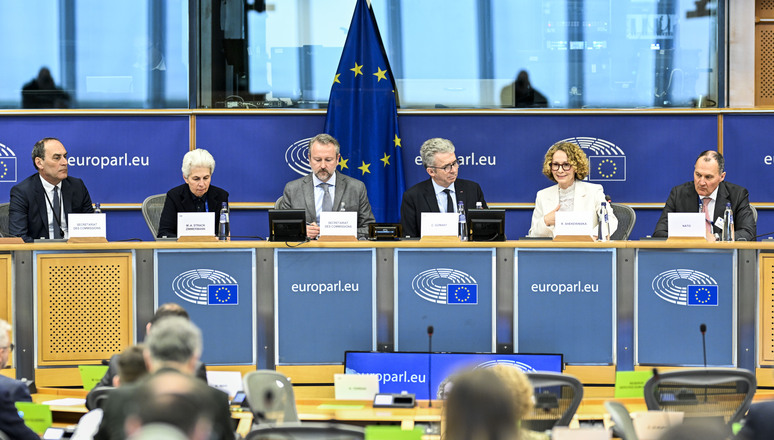
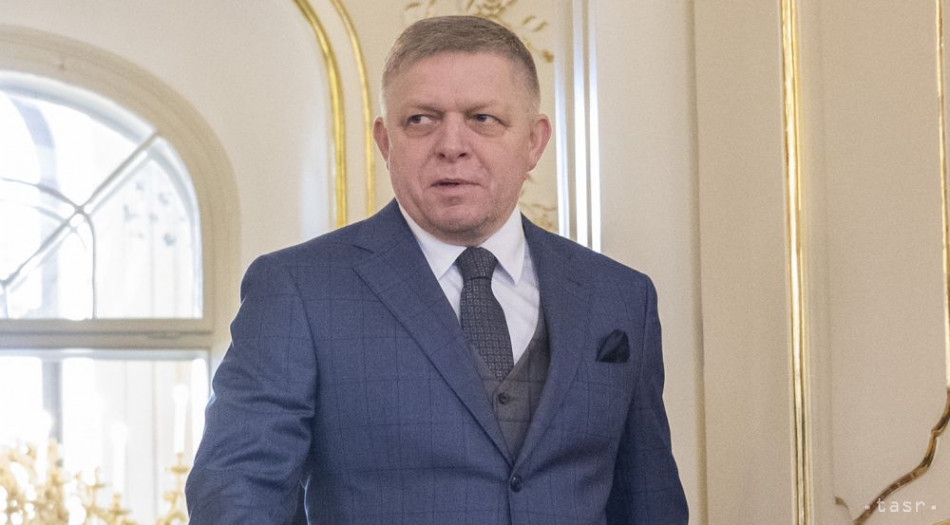



.png?Expires=1838763821&Key-Pair-Id=K2ZIVPTIP2VGHC&Signature=IO0~CT3pU-TcxGc~yoZSmoQx23MZVuK-~4jSii~NKEblRmyO3el7NXPu~Rh1o23voASg7hlcHLw4kvQuDK1jssEhcjoNBBvEpZ~GGOAU6yosBhpHpeF179F~h7i6VxmsBNh9gtTutkoqY73O2YCFey~IAqSzKbBqETP1kP9cAg1916Z1YkJJs-5MliMrkZ5d7-mWGLbpHp2wGj2VlMph8XzYlL4~y1O7fB~JdIS~Rs4RMRs2x0WT1qUIpHAsf3GdwtOyAmKFSpIg8xCyNGZZ5h~13nXlmpd7uPvW8tBfttpG9pFTqcway-uch5WyfHOEfi7UlJCOWrr6fCYY5PMgSg__)







